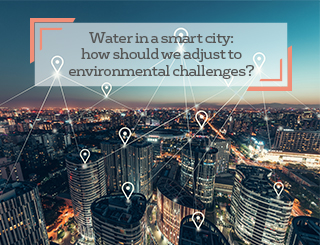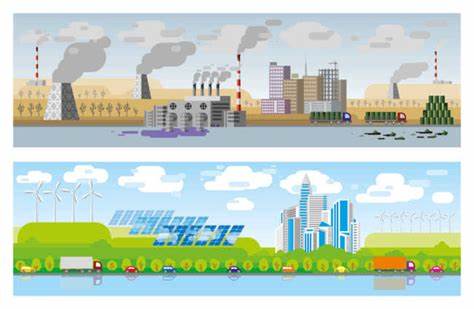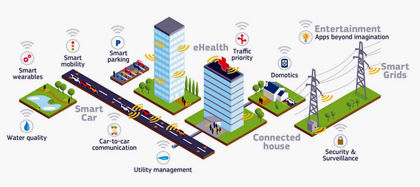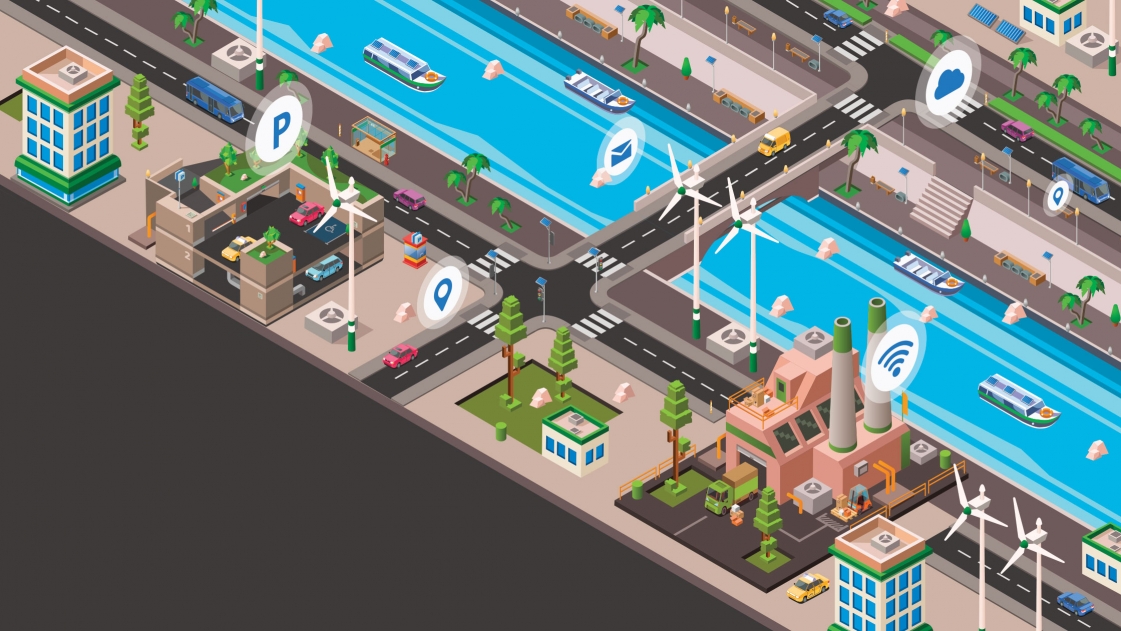
Smart Cities and Wastewater: A Perfect Match for a Sustainable Future
Historical Background
Evolution of Smart Cities
Cities have continuously evolved throughout history to address the needs of their inhabitants. From the invention of the wheel to the development of telecommunication networks, cities have always been at the forefront of innovation.
Historical Evolution of Wastewater Management
Wastewater management has also undergone significant changes over time. Primitive civilizations used basic methods such as open pits and drainage systems to dispose of wastewater. As societies advanced, more sophisticated systems were developed to treat and manage wastewater.
Key Concepts and Definitions
Smart Cities: Definition and Characteristics
A smart city is a concept that utilizes information and communication technologies (ICT) to enhance the quality of life for its residents. It integrates various systems and services to optimize resource utilization, improve efficiency, and create a sustainable environment.

Wastewater Management: Components and Processes
Wastewater management encompasses the collection, treatment, and disposal of wastewater. It involves the use of physical, chemical, and biological processes to remove pollutants and ensure the safe release of treated water back into the environment.
Main Discussion Points
Integration of Smart Technologies in Wastewater Management
Sensor Networks for Real-Time Monitoring
Sensor networks play a crucial role in smart wastewater management. They provide real-time data on various parameters such as water quality, flow rates, and levels, enabling prompt detection of issues and efficient decision-making.
Data Analytics for Efficiency and Predictive Maintenance
Data analytics techniques enable the extraction of valuable insights from the vast amount of data collected by sensor networks. By analyzing historical and real-time data, cities can optimize their wastewater management systems, minimize maintenance costs, and predict potential failures.
Automation and Control Systems for Optimal Operation
Automation and control systems enhance operational efficiency by automating processes and optimizing resource utilization. These systems enable remote monitoring and control, resulting in more effective management and reduced operational costs.
Benefits of Smart Wastewater Management in Smart Cities
Improved Resource Efficiency and Sustainability
Smart wastewater management systems enable better utilization of resources such as water and energy. By implementing advanced technologies and processes, cities can reduce water consumption, increase energy efficiency, and ensure the sustainable use of resources.
Enhanced Public Health and Environmental Protection
Efficient wastewater treatment and management contribute to improved public health by preventing the spread of diseases and minimizing waterborne illnesses. Additionally, the proper treatment of wastewater protects the environment by reducing pollution and preserving aquatic ecosystems.
Cost Savings and Economic Benefits
Smart wastewater management systems can result in significant cost savings for cities. By optimizing processes, reducing water loss, and minimizing maintenance requirements, cities can achieve long-term economic benefits and allocate resources to other important areas of development.
Policy and Governance Considerations
Privacy and Data Security Concerns
The integration of smart technologies in wastewater management raises concerns about privacy and data security. Cities must implement robust data protection measures and ensure that personal information remains confidential.

Coordination and Collaboration among Stakeholders
Successful implementation of smart wastewater management requires collaboration among various stakeholders, including government agencies, utility companies, technology providers, and the public. Effective coordination ensures smooth operations and maximizes the potential benefits of these systems.
Regulatory Frameworks and Standards
To promote the widespread adoption of smart wastewater management, regulatory frameworks and standards must be developed and implemented. These frameworks ensure that systems meet quality and performance requirements while maintaining consistency across different cities.
Case Studies or Examples
Barcelona, Spain: Smart Water Management System
Barcelona has implemented a comprehensive smart water management system that utilizes advanced technologies to monitor water consumption, detect leaks, and optimize water distribution. The system has resulted in significant water savings and improved resource efficiency.
Singapore: Smart Wastewater Treatment Plant
Singapore has integrated smart technologies into its wastewater treatment plants to enhance operational efficiency and reduce energy consumption. The implementation of automation, data analytics, and real-time monitoring has enabled the city-state to achieve sustainable wastewater management.
Portland, Oregon: Smart Stormwater Management
Portland has implemented a smart stormwater management system that utilizes sensor networks and real-time data to monitor and control stormwater flows. The system has improved flood control measures and minimized environmental impact.
Current Trends or Developments
Adoption of Internet of Things (IoT) in Wastewater Management
The Internet of Things (IoT) is revolutionizing wastewater management by enabling the interconnectivity of devices and systems. IoT devices can collect data, communicate with each other, and automate processes, leading to more efficient and sustainable wastewater management.
Integration of Artificial Intelligence and Machine Learning in Decision-Making
Artificial intelligence (AI) and machine learning (ML) algorithms are being increasingly used in decision-making processes related to wastewater management. These technologies can analyze complex datasets, predict system behavior, and optimize operations for better resource utilization.
Use of Blockchain Technology for Data Transparency and Security
Blockchain technology offers enhanced data transparency and security in wastewater management. By utilizing decentralized and tamper-proof data storage, cities can ensure the integrity of data collected from various sources and promote trust among stakeholders.

Challenges or Controversies
Privacy Concerns and Ethics of Data Collection
The collection and use of personal data in smart wastewater management systems raise concerns about privacy and ethics. Cities must address these concerns by implementing transparent data policies and obtaining informed consent from individuals.
Cost and Financial Sustainability of Smart Wastewater Systems
Implementing smart wastewater systems can be financially challenging for cities, especially those with limited resources. It is crucial to evaluate the long-term costs and benefits and explore sustainable financing options to ensure the viability and affordability of these systems.
Resistance to Change and Lack of Awareness
Resistance to change and lack of awareness among stakeholders can hinder the adoption of smart wastewater management systems. Effective communication, education, and stakeholder engagement are essential to overcome these challenges and foster acceptance and support.
Future Outlook
Potential Expansion of Smart Wastewater Management in More Cities
With the increasing need for sustainable and efficient wastewater management, smart technologies are expected to be adopted by more cities worldwide. The potential for expansion is immense, as cities recognize the benefits and value of these systems in addressing pressing environmental and resource challenges.
Integration of Wastewater Management with Other Smart City Systems
The integration of wastewater management with other smart city systems, such as energy management and transportation, can lead to synergies and optimize resource utilization. By creating interconnected systems, cities can achieve holistic and sustainable urban development.
Advancements in Technology and Innovation
Advancements in technology and innovation will continue to shape the future of smart wastewater management. Emerging technologies, such as nanotechnology and advanced sensor systems, hold tremendous potential for improving efficiency, reducing costs, and enhancing environmental protection.
Conclusion
Smart wastewater management systems play a crucial role in creating sustainable and livable cities. By integrating smart technologies, cities can optimize resource utilization, improve public health, protect the environment, and achieve significant cost savings.
Significance of Implementing Smart Wastewater Management in Smart Cities
Implementing smart wastewater management in smart cities is of utmost significance in the face of growing urbanization and environmental challenges. These systems contribute to achieving the United Nations Sustainable Development Goals and pave the way for a sustainable future.




